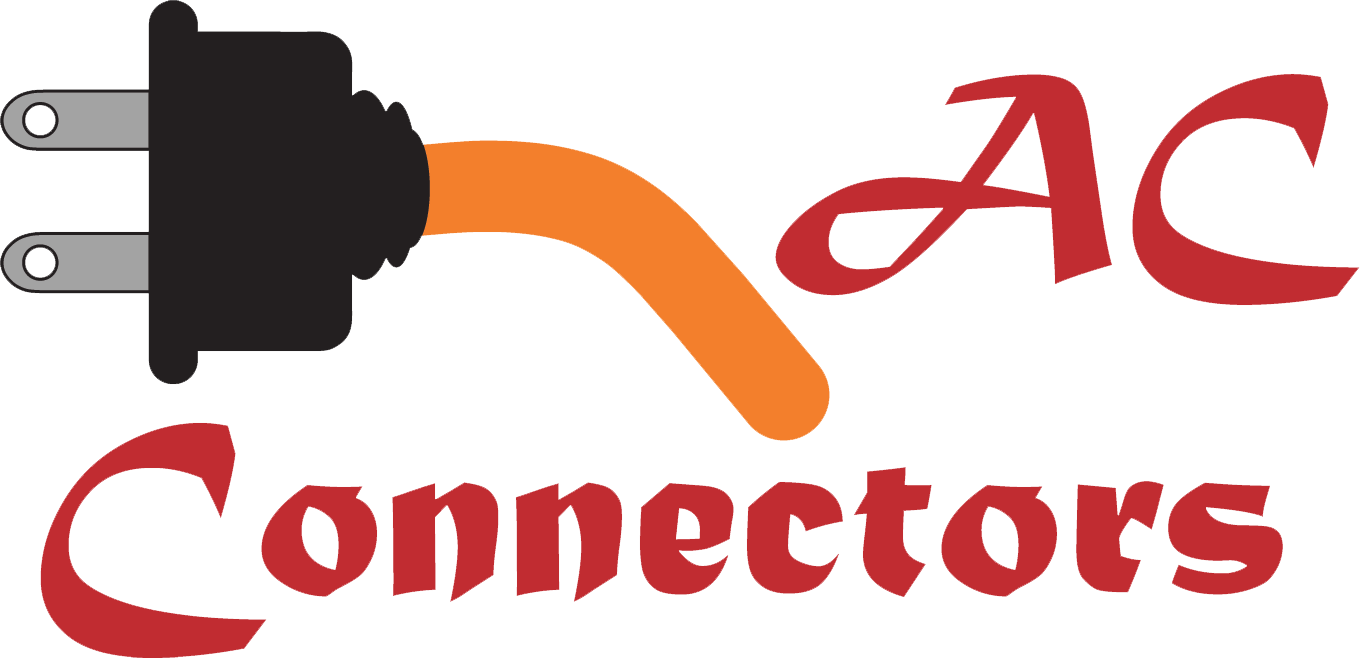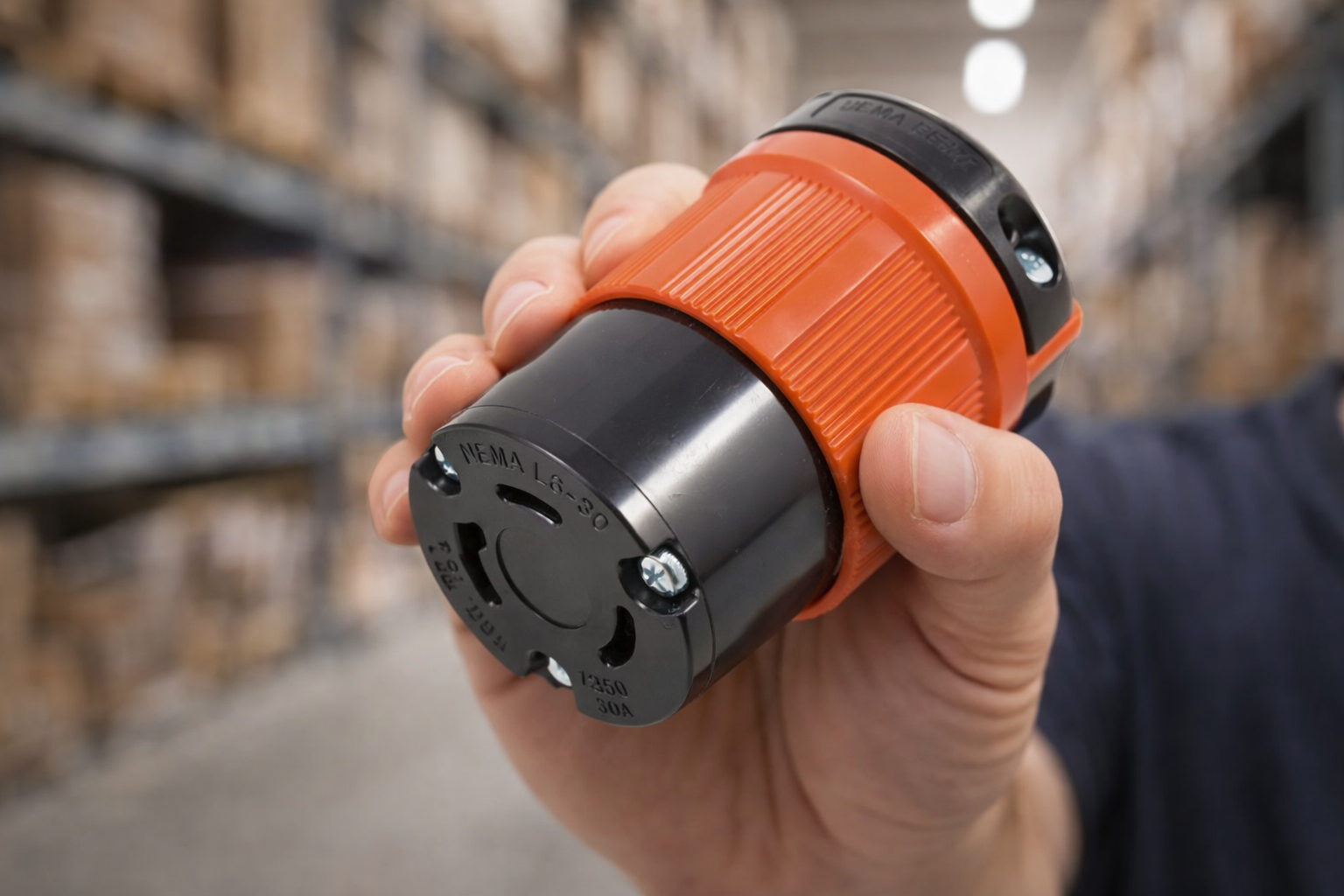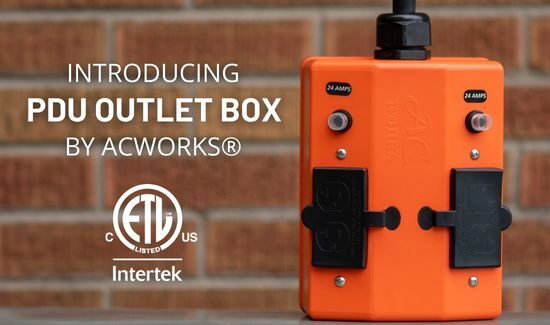Before you head out for a season full of good times and make memories, make sure you understand your RV and the electrical system. You don’t want to find yourself camping and damaging any of the appliances you planned on using during your trip.
The most common RV Electrical system is a 30 Amp system. The plug on your RV will be a 3-prong, 30 Amp, 125 Volt male plug. Most commonly, a campground will supply 30 Amp power.

With the 30 Amp RV, you will be able to run an air conditioning unit and some of your appliances at one time. It is a good idea to keep a 30 Amp to 50 Amp adapter on hand, AC WORKS® brand offers an RV1450TT adapter. You may come across a situation where the campsite only has 50 Amp service available. It is better to have power than no power in this situation. Especially if it is 100 degrees outside and you want to run your air conditioner.

If you have a 50 Amp RV, the plug on your RV will be a 4-prong, 50 Amp, 125/250 Volt male plug. In this situation, you will require an adapter to plug into the campground 30 Amp service. We have an AC WORKS® brand adapter RVTT1450, which will allow you to plug your RV plug into the NEMA 14-50R female connector and the NEMA TT-30P into the receptacle in your campsite power pedestal.

If the campground supplies you with a 15/20 Amp Household outlet, you can get an adapter to plug from your RV cord to the campground's household outlet. Not only is this very uncommon, but it is also inefficient as you will not be able to use many appliances. This option limits the power available to you. You must be careful what you are running and when, if plugged into the 15/20 Amp household outlet. For example; if you are running your Roof AC unit while plugged into a 15/20 Amp household outlet, you better be taking a nap, because you will unlikely be able to run any other appliances simultaneously without damaging your AC unit.
With a 50 Amp RV, you will be able to run most of the appliances in your RV at once. This will often include multiple air conditioners. Just to be safe, you can keep both an AC WORKS® brand RVTT1450 adapter 50 Amp to 30 Amp and a 30 Amp to 15/20 Amp Household Style adapter on hand if you have a 50 Amp RV. You can plug the 50 Amp to 30 Amp into your RV, the 30 Amp to Household into your first adapter, and then plug into a household outlet. Again, this will limit the amount of power you can use, but at least you will have something if only the household outlet is available.
Typically, the appliances in your RV that generate cool/heat will require the most power. These appliances are your heater, water heater, stove, microwave, hairdryer, and of course your air conditioner. If you look closely at each item you will see the amperage or wattage required by each appliance, allowing you to figure out exactly what you can and cannot run at once. If you have not read our post about how to figure out power or amps, watts, and volts it might come in handy when trying to figure out the amount of power required.
Here are a few tips:
- Before you plug into the pedestal at the campground, power off your appliances.
- Make sure the breakers on the pedestal at your campsite are in the off position.
- Get a polarity tester or a combination polarity/voltage tester and always test the campgrounds pedestal before you plug into it. You don’t want to ruin your RV or shock yourself. Better safe than sorry.
It is important to become familiar with your RV’s electrical system and the wattage used to run the appliances within your RV. This will prevent hassle in future situations where you may not have the power supply required or necessary to run all appliances at once. In the event you try to run too many devices at once, the RV will let you know by tripping the breaker. You should always know what power you are working with because you don’t want to rely on the breaker tripping. Damage or shock can occur if the breaker does not trip for any reason.
If you have any questions or concerns, please contact our customer service team via email or direct (414-434-2220). If you want to hear more about a certain topic on our blog email Stephanie.







Share:
Generator and RV Safety
Frequently Asked Questions - 2
2 comments
Please contact our product support specialists, info@acconnectors.com or call 1-414-434-2220. We offer 24/7 customer service. They will be able to help you with your questions and concerns right away. Thank you for your feedback.
Just received your 4 prong male 120/240 30 amp generator plug to 30 amp RV female adapter to plug my airstream into. When generator switch is at 102/240 circut breaker on generator blows, works when switched to 120 20 amp. Any recomendation as to how to get full 30 amp